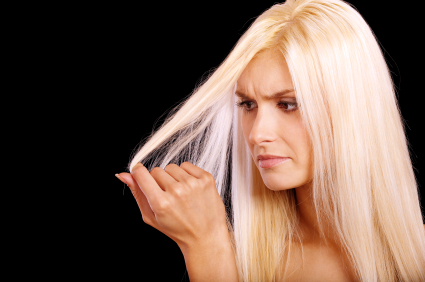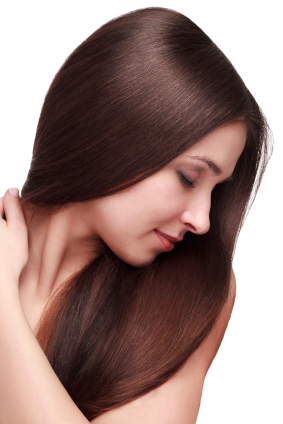Henna is the best way to safely dye your hair without nasty chemicals that can cause irritation, and other adverse affects of using chemicals. Although hennaing is a gentle process to begin with, some henna sifts may not be as fine, making them a little harder to apply and rinse out. This can be especially bothersome for those with very curly hair as henna particles can get trapped. Following are some henna recommendations and mixes according to hair type.
Curly hair, all types
Curlies greatly benefit from creamier, smoother henna mixes so that the mix is easier to apply and wash out. The best henna we stock for curlies are the Jamila (for warm tones) and Red Raj (for cooler tones) as these hennas have the finest sift and create a lovely, creamy paste. Other hennas that are slightly coarser in texture like our Fresh Moroccan henna, Jamila for hair or Yemeni can be used as well and benefit from the addition of Organic Aloe Powder (New to Henna Sooq!) to provide extra slip which will assist with henna application.
To mix the henna, herbal teas such as one made from our Egyptian Chamomile flowers and/or Organic Hibiscus Petal Powder are great for extra conditioning. Avoid using true teas such as black or green tea as these contain tannins that can leave a coating on the hair and make the hair feel dry and crunchy. For those that have very curly and coarse hair (particularly dry), using coconut milk as the primary liquid for henna mixes is perfect to create a smooth mix with added moisture- Great for fragile hair! Experiment to see if this works for you and adjust amounts accordingly. Other great henna paste additions are very well mashed avocados and Greek Yogurt.
Henna has a tendency to relax curls, so if you’re wanting to keep your curls, adding 1 TBS of Organic Amla Powder per 100g of henna will help without affecting the henna colour. Extra dry coarse hair benefits from 1-2 tablespoon of melted shea or cocoa butter, Organic Argan oil, avocado oil or olive oil added to the mix (1-2 TBS per 100g of henna). Add our Organic Aloe powder, not only for slip, but for moisturising as well! Apply henna paste to damp hair and rinse hair out with water or conditioner.
Fine hair or fragile hair
Fragile/fine hair also needs the smoothest henna pastes to prevent breakage while applying/washing out. Just like curlies, fine/fragile tresses do best with hennas such as Jamila (warmer tones) and Red Raj (cooler tones). Also, using tea made from Egyptian Chamomile Flowers or Organic Hibiscus Petal Powder as the liquid will add a little extra conditioning, though plain water is a good option. Do avoid true teas such as black tea or green tea, as they contain tannins that coat the hair, making your strands feel dry. Choose bottled or distilled water for better results. Oil-wise, adding 1 TBS or less of Organic Camellia oil or grapeseed oil to 100g of henna is great for adding moisture without the heaviness. A great addition to henna paste is our new Organic Aloe Powder which will improve the application by adding extra slip. Apply to damp freshly washed hair as the henna is easier to apply. Do not pile the hair on top of the head as this can cause breakage due to the extra weight from the henna. Instead, gently press and adhere small sections of hair with henna paste around your head and wrap hair gently.
Medium/Normal Hair Types
Medium/Normal hair types can follow fine hair/fragile guidelines or curly, just keep the heavy butters and oils to a minimum, or switch to oils such as coconut or Organic Argan oil. Herbal teas and water are ideal for creating a nice smooth mix. Use any henna you like and feel free to add Organic Aloe Powder to improve the texture, moisturising properties and slip of the henna paste.
Remember, don’t feel intimidated to experiment as you’re hair deserves the best regimen suited to your hair type.
Henna powder, Organic Argan oil, Organic Aloe Powder, Egyptian Chamomile Flowers, Organic Hibiscus Petal Powders, Camellia oils can all be found in at Henna Sooq’s Online Store.









I’m really excited to try henna but I’m worried about losing my curls. Should I do a few amla treatments first to tighten the curls as much as possible or will I be fine with mixing it with the henna? Why exactly does the henna relax curls? Also, why does it dry the hair if it’s supposed to be so moisterizing/strengthening? I’m sure you went over this somewhere but in the blogs I’ve read so far it seems that oils ec. are reccommended to combat this. Thanks!
Thank youj for your post Loretta. You can use amla and henna together to combat any possible loosening of your curls. Henna and cassia both just naturally loosen the curl pattern as it weighs the hair down some. The herbs are not moisturizing at all. They condition and strengthen the hair but not in a moisturizing way. I hope this helps!
I mix my henna with coconut milk. I like the thickness of the batch. I don’t have to worry about drips everywhere. I like the other suggestions for ingredients to add. I really want to try including a little cocoa butter and aloe.
Let us know how it turns out L 🙂
:)) I can’t wait to try Aloe Powder in my henna.
I am very disappointed! I was at the Atlanta Hair show I told your sales rep that I wanted a Henna to dye my hair light brown. My hair is sandy brown and blonde. She sold me something called Brahme Powder. I think she sold it to me because this was all that she had left. She pretended that this was what I needed. I hate that she tricked me. No where on your site do I see that this product will color light brown.
Good day Tanya. Thank you for bringing this to our attention. It may be and it sounds like our staff working for us at the show was not informed with the coloring of brahmi. Mostly the herbs that we carry will dye anywhere from reddish to all brown tones , and up to black tones. But light brown yes with brahmi you can get more brown in your hair but you’d need some cassia to lighten it up as well. Lighter tones in general are very difficult to achieve on darker hair tones with henna and natural hair coloring herbs that we carry. Since I’m one of the owners, and I was at the show, that wasn’t all we had left. We didn’t run out of stock of any products except for Red Raj, and handmade products such as shampoo bars.
You were not tricked by us. We would have liked to give you more details as to how you could use brahmi to create a light brown recipe but alone you won’t get light brown on it’s own. If you prefer you can email me directly as I’d really like to help with that at khadija@hennasooq.com
Should you ever have concerns it’s best to try to reach us directly so that we can help with your hair recipe and our products. I hope this helps! Speak soon
Hello! I’m a new reader, but I’ve been using henna on my hair for about two years now.
I have a question about mixing henna. You recommend avoiding actual teas and using herbals instead; I’ve been using black tea to mix my henna, and my hair always feels super dry afterwards. I had no idea that tannins can contribute to dryness!
Anyway, I’m wondering whether chamomile tea is acidic enough to achieve dye release on its own? Or would you have to add something more acidic to the mix?
Thanks!
Would the avocado and henna be too drying for natural hair? I would really like to use it.
Good day Lauren. Thank you for posting. Would this be fresh avocado or avocado oil? Avocado would be adding moisture to the recipe but will dilute color coming from the henna.
hello. I have natural light brown hair, I would like to change it into dark warm brown. what should I use to achieve that? thank you.